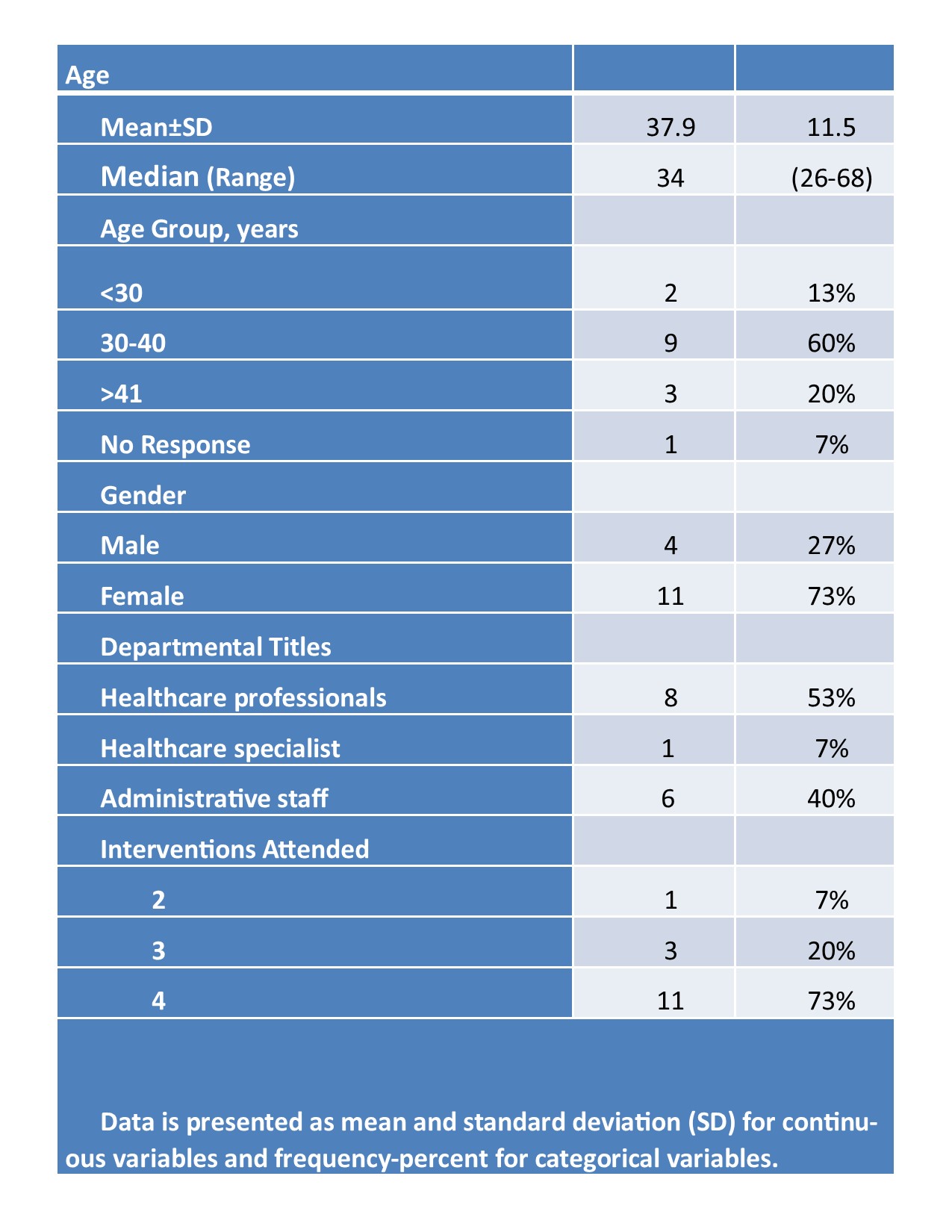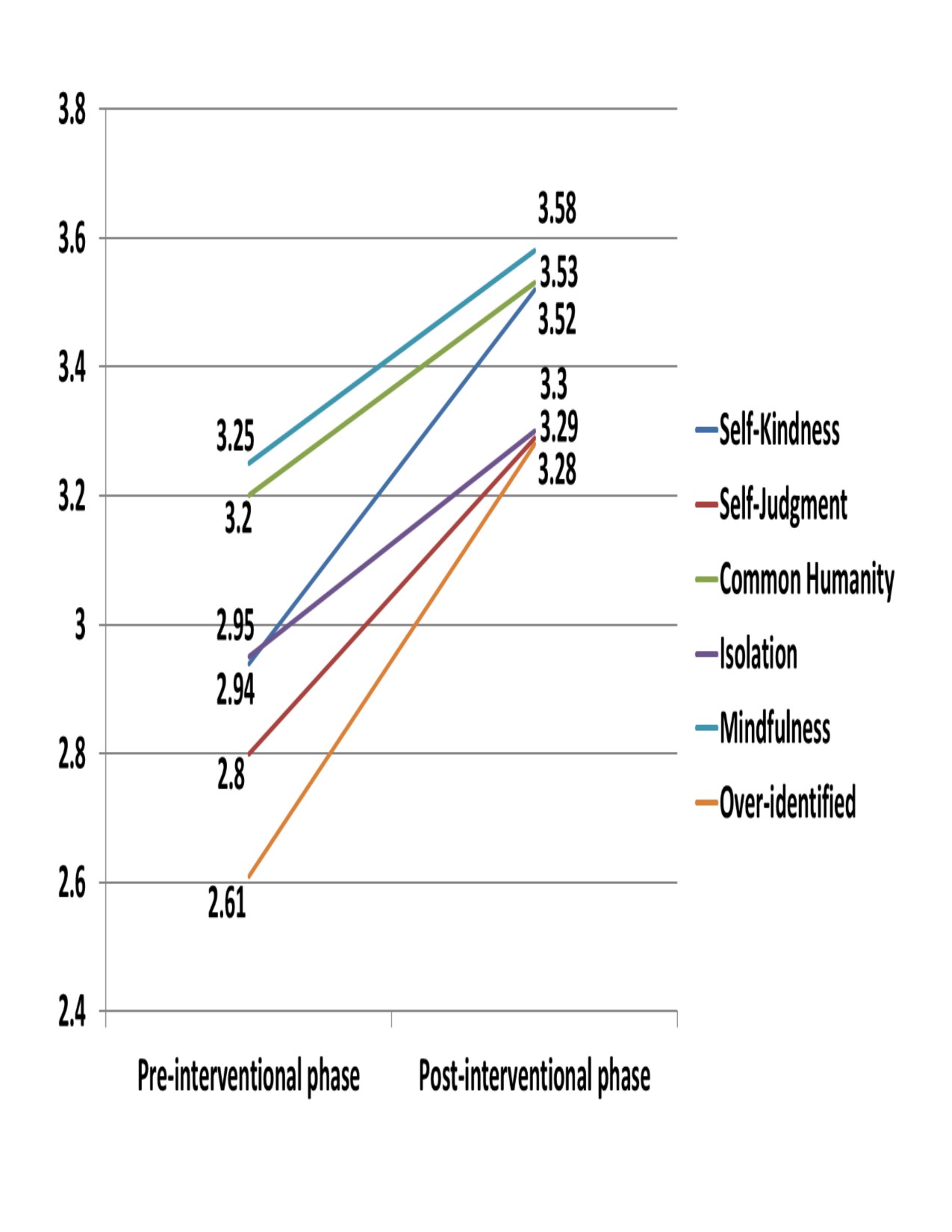Background: Stress is prevalent in healthcare where a certain level of stress is constant. Healthcare workers face higher rates of burnout that could be characterized by emotional exhaustion, depersonalization and could make it difficult to connect with patients in meaningful ways. Yogic Lifestyle brings into account the different variations of a healthy lifestyle combined into one practice, where elements of Mindfulness, Mindful eating and mind-body exercise with Tantra Yoga could allow self-preservation.
Methods: Prospectively recruited healthcare staff from a metropolitan hospital participated in 4 sessions (60-mins) of Yogic Lifestyle, where participants were educated on elements of Mindfulness practice, Mindful Eating and Energetic Tantra Yoga philosophy (meditation movement and mindfulness). Twenty-one patients were recruited and 15 completed all the study specific sessions and questioners. Two validated surveys were performed at baseline and 5-week: Self-Compassion Scale (SCS) (scale 1-5) and Perceived Stress Scale (PSS) (scale 0-4). Surveys and attendance were analyzed for overall perceived change. After 4 weeks, the subjects completed a questionnaire stating self-reported frequency/week of the interventions.
Results: Among the 15 participants, 73% were females, mean age of 38±11 years (range 26-68 years) and 67% were engaged in active clinical/patient care. Each session had 80% attendance. Baseline mean score of PSS was 19.9±5.3 which reduced to 13.7±4.3 after the Yogic sessions, a reduction of 33% (p<0.05). Whereas SCS score, at baseline was 3.0±0.7 increased to 3.4±0.7, an increase of 16% of self-compassion (p<0.05). Sub grouped by gender, females has 34% decrease in PSS score and 21% increase in SCS score, males had 30% decrease in PSS and 4% increase in SCS scores. Effect of the interventions and practices was reported to be most optimum after 3 sessions.A significant reduction in mean PSS scores from 19.9±5.3 to 13.7±4.3 (p=0.002) and increase in SCC scores from 2.95± 0.71 to 3.42 ± 0.66 (p=0.002) was observed after the interventions. Among the SCC scale subgroups, the interventions were associated with significant improvement is self-kindness, self-judgment, common humanity, mindfulness and over identification. Baseline stress score were higher (21.82) in females as compared to males (14.75). Improvement in stress scores following yogic lifestyle was higher in females (34%,14.36) in comparison to males (30% ,10.25). Effect sizes computed by Hedges g demonstrated a large (1.33) effect following intervention in PSS scores and a medium (0.66) effect in SCC scores.
Conclusions: Yogic lifestyle reduced Perceived Stress by 33% and Self-Compassion increased by 16% in study participants. Subgroup analysis demonstrated a larger effect of the sessions on females than males. Therefore, the elements of Yogic lifestyle exercised have an impact on improving well-being in healthcare professionals.


